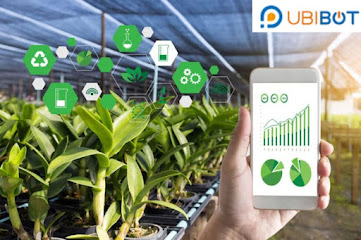Revolutionizing Data Monitoring with Remote Sensors and Wireless Technology
Introduction In the era of rapidly advancing technology, data monitoring has become an integral part of various industries, including manufacturing, agriculture, and logistics. The use of wireless thermometer sensors, wireless vibration sensors, and wifi tags has transformed the way businesses gather, analyze, and manage data. This blog post will explore the benefits of these innovative devices and their impact on modern industries. Remote Thermometer Sensors: Enhancing Temperature Monitoring WiFi Temperature monitoring is critical in various industries, including healthcare, food storage, and manufacturing. Thermometer sensors have revolutionized temperature data collection, allowing businesses to monitor temperatures in real-time and from virtually anywhere. These devices provide numerous benefits: Accurate and Reliable Data: These sensors ensure precise measurements, helping businesses maintain optimal conditions for their products or processes. Real-time Alerts: When temperature...


